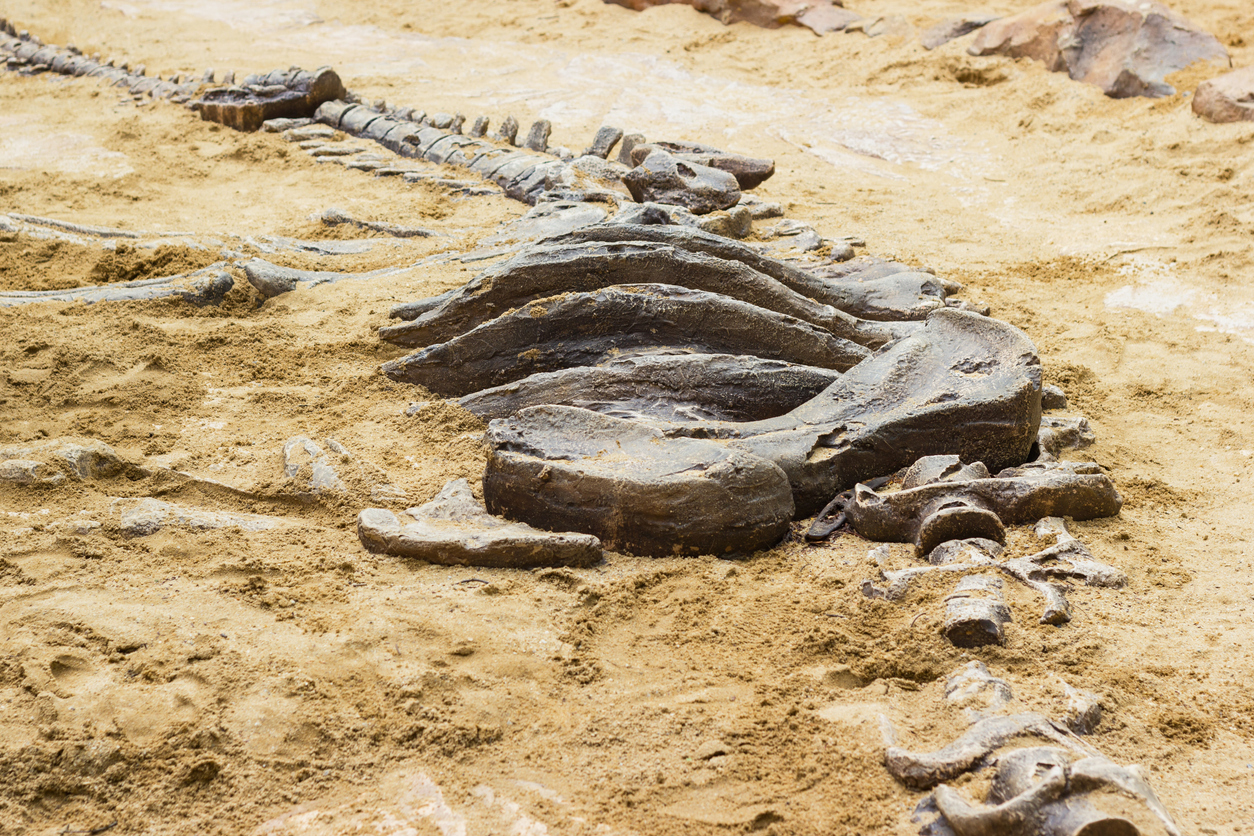A fossil site in North Dakota might help paleontologists understand the death of the dinosaurs better than ever before


Some are calling it a "treasure trove" of evidence about the day the dinosaurs died.
A report made available on Friday by the prominent science journal Proceedings of the National Academy of Sciences said that an international team of 12 scientists discovered a bed of fossils in North Dakota that consists of remains of insects, fish, mammals, dinosaurs, and plants that appear to date to the very day a giant meteor crashed into the Earth off the coast of modern-day Mexico 66 million years ago.
The impact of the meteor infamously launched a series of firestorms that eventually led to the destruction of a significant amount of life on Earth at the time, including dinosaurs, allowing for mammals to emerge as the planet's dominant land megafauna. The discovery of the fossils reportedly represents "unparalleled" evidence of the repercussions of the meteor.
The Week
Escape your echo chamber. Get the facts behind the news, plus analysis from multiple perspectives.

Sign up for The Week's Free Newsletters
From our morning news briefing to a weekly Good News Newsletter, get the best of The Week delivered directly to your inbox.
From our morning news briefing to a weekly Good News Newsletter, get the best of The Week delivered directly to your inbox.
Per Science Daily, the "unique, fossilized graveyard" consists of fish stacked on top each other mixed in with burned trees, bones of prehistoric sea creatures like mosasaurs, insects, and a partial carcass of a Triceratops.
"This is the first mass death assemblage of large organisms anyone has found associated with the K-T boundary," the team's lead researcher Robert DePalma said, using the geological term designated for the end of the Cretaceous Period. "At no other K-T boundary section on Earth can you find such a collection consisting of a large number of species representing different ages of organisms and different stages of life, all of which died at the same time, on the same day."
A free daily email with the biggest news stories of the day – and the best features from TheWeek.com
Tim is a staff writer at The Week and has contributed to Bedford and Bowery and The New York Transatlantic. He is a graduate of Occidental College and NYU's journalism school. Tim enjoys writing about baseball, Europe, and extinct megafauna. He lives in New York City.
-
 Nobody seems surprised Wagner's Prigozhin died under suspicious circumstances
Nobody seems surprised Wagner's Prigozhin died under suspicious circumstancesSpeed Read
-
 Western mountain climbers allegedly left Pakistani porter to die on K2
Western mountain climbers allegedly left Pakistani porter to die on K2Speed Read
-
 'Circular saw blades' divide controversial Rio Grande buoys installed by Texas governor
'Circular saw blades' divide controversial Rio Grande buoys installed by Texas governorSpeed Read
-
 Los Angeles city workers stage 1-day walkout over labor conditions
Los Angeles city workers stage 1-day walkout over labor conditionsSpeed Read
-
 Mega Millions jackpot climbs to an estimated $1.55 billion
Mega Millions jackpot climbs to an estimated $1.55 billionSpeed Read
-
 Bangladesh dealing with worst dengue fever outbreak on record
Bangladesh dealing with worst dengue fever outbreak on recordSpeed Read
-
 Glacial outburst flooding in Juneau destroys homes
Glacial outburst flooding in Juneau destroys homesSpeed Read
-
 Scotland seeking 'monster hunters' to search for fabled Loch Ness creature
Scotland seeking 'monster hunters' to search for fabled Loch Ness creatureSpeed Read



